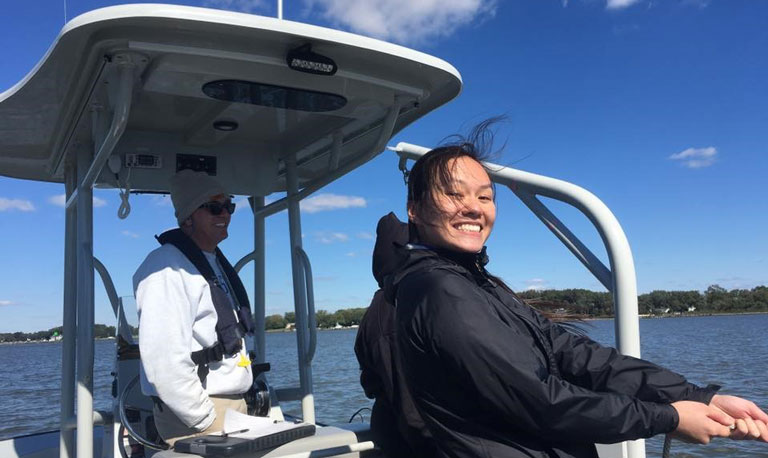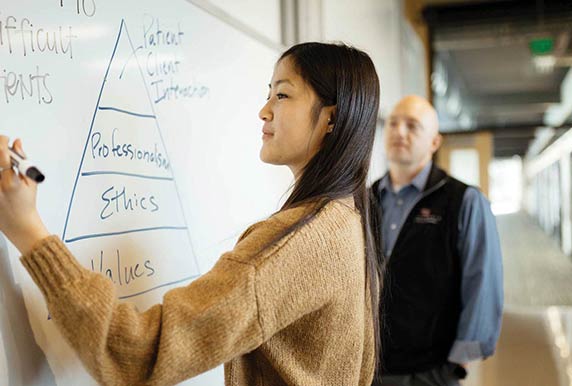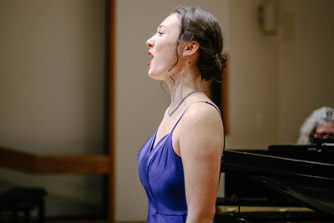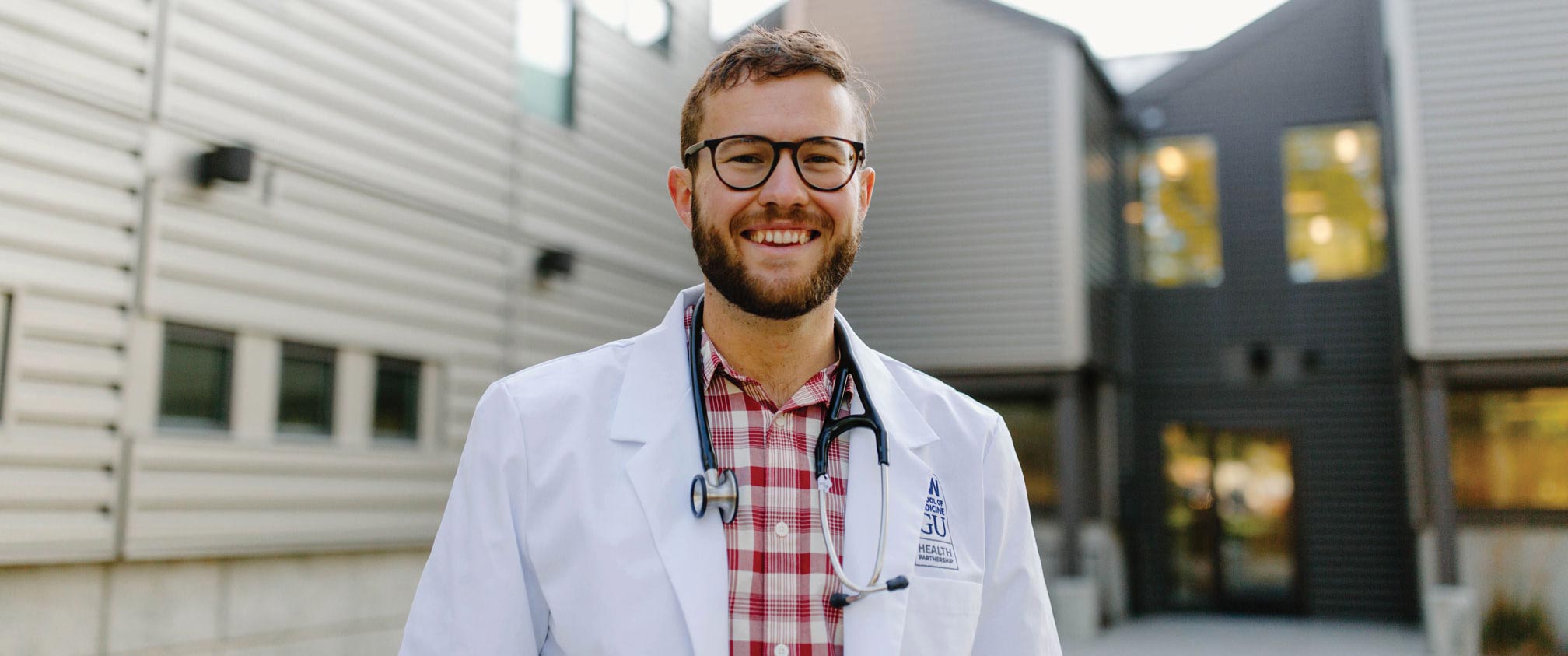
- Whitworth University
- Our Stories
- Whitworth Today Magazine
- Timeline Medical School
- Whitworth University
- Our Stories
- Whitworth Today Magazine
- Timeline: Medical School
Timeline: Medical School
By Kevin Glover '16
Biology Major, Theology Minor
I decided to apply to medical school several years after graduating from Whitworth, making me what is considered a nontraditional applicant. While at Whitworth I juggled a lot of interests in true liberal arts fashion: I did research in microbiology and I was passionate about theology. During the summers I worked for Peak 7 Adventures, a nonprofit outdoor leadership program.
After graduating I continued doing youth mentorship in Spokane, but over time I realized that I missed the rigor of scientific thinking. Medicine seemed to offer a natural marriage of my love of science with my desire to be an advocate for vulnerable people.
Applying to medical school is an expensive, complex and competitive process: The average acceptance rate ranges from 2 to 15 percent. Many nontraditional med school applicants like me have a hard time getting the recommendations and help they need. I knew that finding support from experts would be critical.
JANUARY 2018
I sent a "Hey, I've been thinking about medical school" email to Mike Sardinia (biology), who, along with Karen Stevens (chemistry), is the point person for Whitworth's pre-medical program. "Dr. Mike" brought me to his office and asked why I was thinking about medicine. He listened, asked a few questions, then gave me a litany of things to do ranging from additional coursework to shadowing physicians.
FEBRUARY 2018
Alicia Epps (psychology) mentored me for a month in her lab, where I did research in behavioral science alongside her students. Exposure to the research process is crucial for future doctors, since the foundation of their practice is the basic science that informs biomedicine.
“AS A FIRST-GENERATION COLLEGE GRADUATE...I NEEDED HELP BUILDING NETWORKING OPPORTUNITIES WITH PHYSICIANS.”
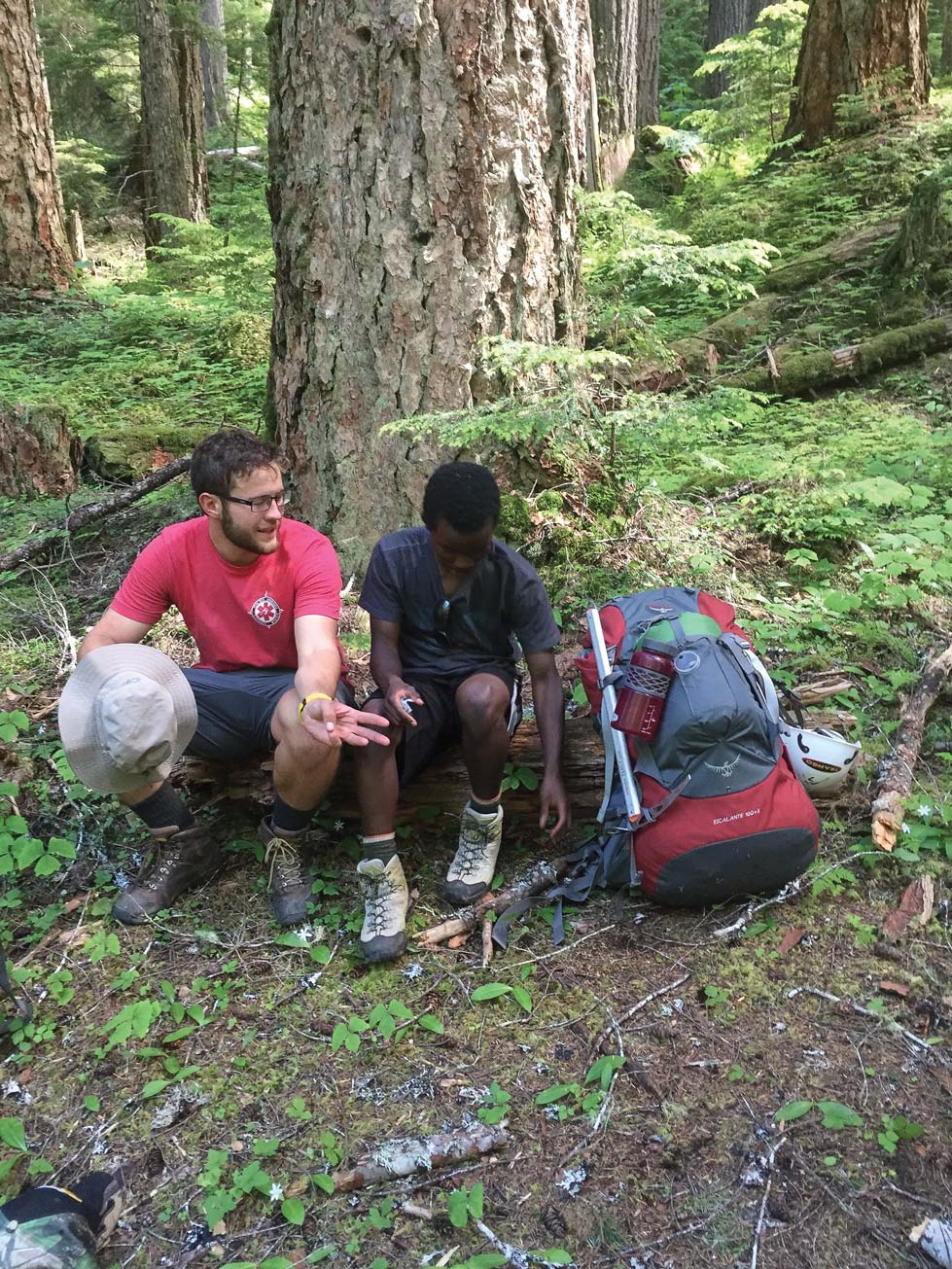
MAY 2018
As a first-generation college graduate from a rural area, I have no family working in medicine and I needed help building networking opportunities with physicians. Whitworth's alumni relations office connected me with four healthcare professionals who allowed me to shadow them on the job. The highlight was watching Dr. Erik Gilbert (the father of two current Whitworth students) surgically replace someone's ear drum. That was amazing.
SUMMER & FALL 2018
To gain experience, I found a job as a medical scribe for a nonprofit clinic in Spokane. I also went back to school to complete additional coursework, and I drafted and revised my personal statement for my application. At least four Whitworth professors reviewed my statement as well as a couple of good friends from college. Always keep your English major friends close, folks.
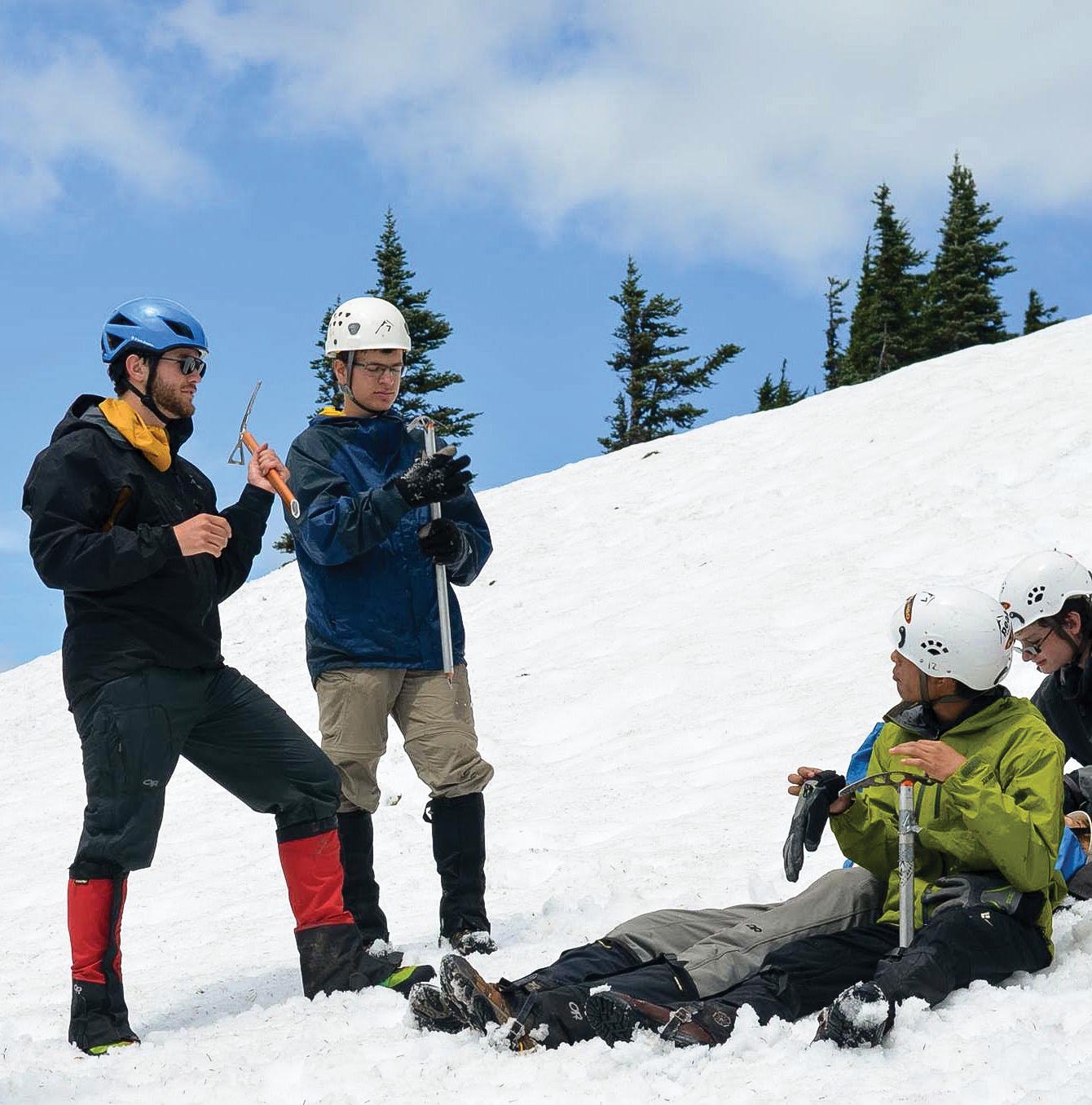
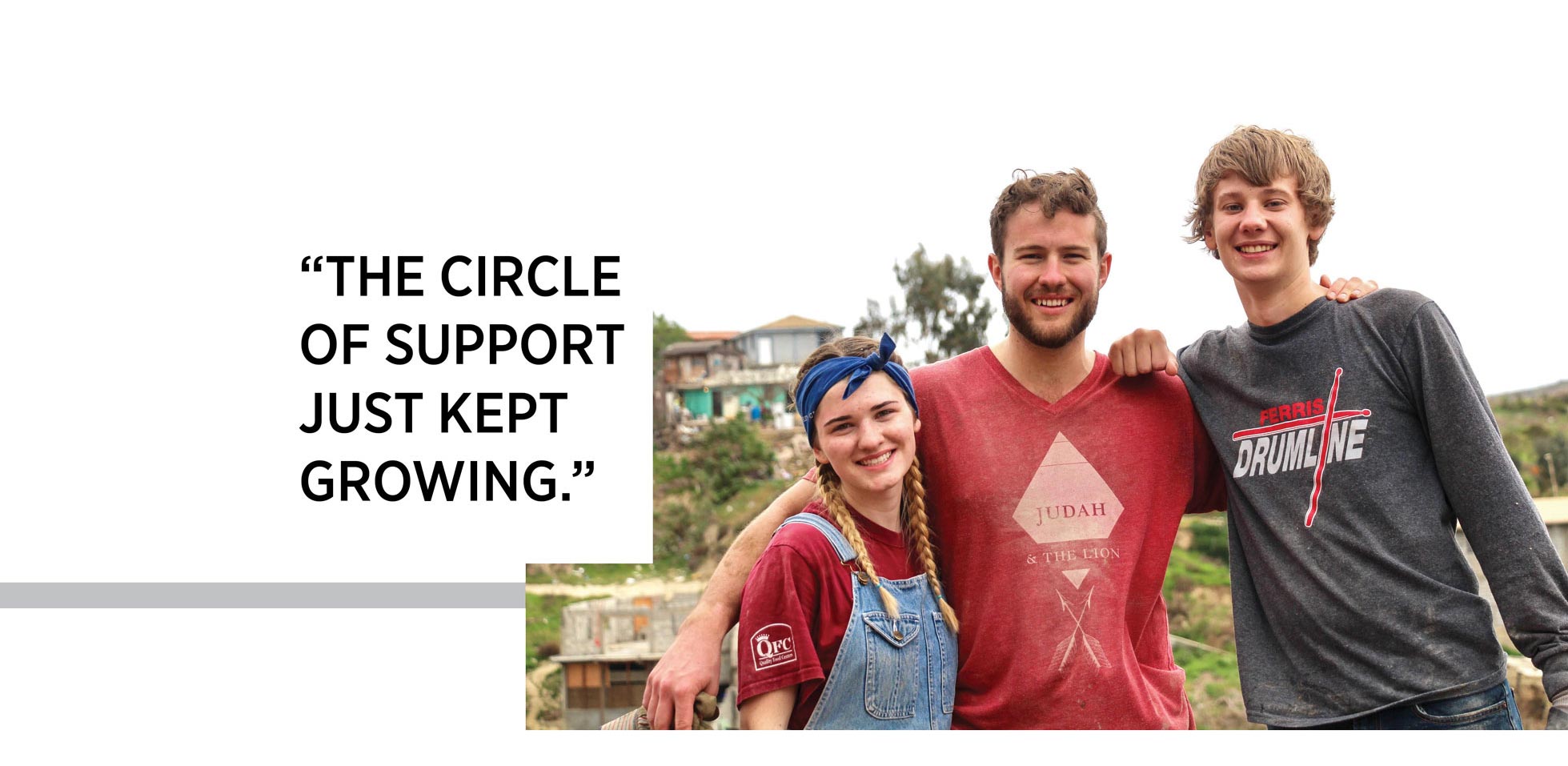
MAY 2018
With the application period opening in May, Alicia Epps became my point-person for all aspects of the application process. Her help in answering my increasingly detailed questions was crucial. Kamesh Sankaran (engineering & physics) gave me advice and provided a letter of reference.
I also studied for the MCAT, a grueling 71⁄2-hour exam. The test had recently added a section on psychology and sociology, which was problematic because I hadn't taken those classes at Whitworth. Mark Killian (sociology), a friend of mine from church, shared documents he had curated to help his students who were studying for the MCAT. The circle of support just kept growing.
SPRING 2019
I submitted my application and hoped that a school or two would want to meet me. In preparation for interviewing with programs, Whitworth's pre-med faculty committee gave me a rigorous three-hour mock interview, and Tiffany Riddle (career services) grilled me in a mock interview as well.
FALL 2019
I traveled to Tijuana, where I stayed at an orphanage for two months and spent each day at a low-income clinic where I improved my Spanish and learned about medicine in Mexico.
Seven medical schools took the bait and accepted my application! Throughout the fall I attended interviews around the country.
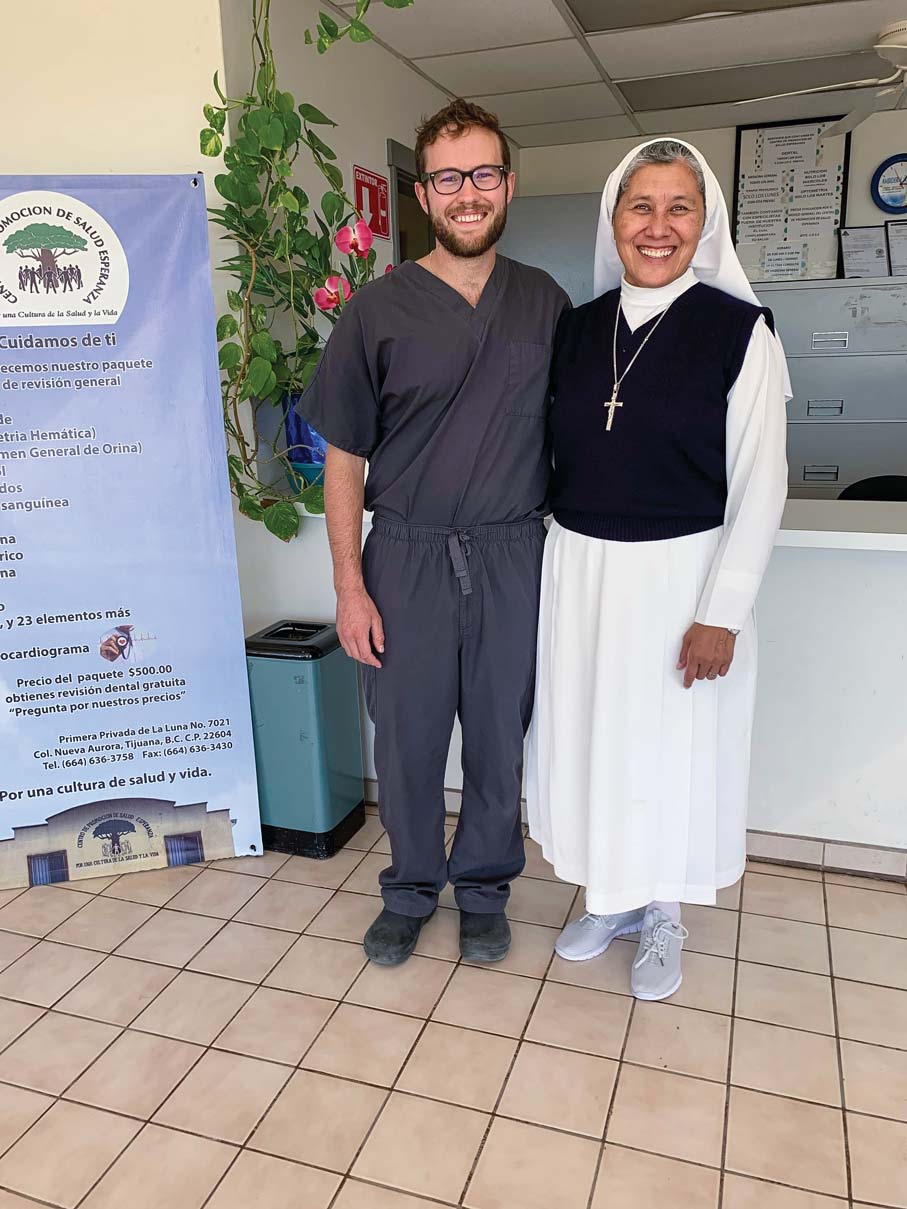
MARCH 2020
In the early grip of the COVID-19 pandemic, March found me deciding between programs at the University of Washington, Duke University and University of California, San Francisco. Choosing a school amid the massive uncertainty of the pandemic was difficult, but each program emphasized service and would allow me to do meaningful interdisciplinary research.
I chose the University of Washington because I was excited about the program's opportunities to conduct community-based research on healthcare equity. My education at UW will engage me intellectually as it equips me to act on the social and medical inequalities that trouble my heart.
FALL 2020
My first day of medical school found me in Ellensburg, Wash., screening nursing home residents for COVID-19. I had been accepted into UW's rural and underserved sub-track, which includes placement in a small town prior to the formal start of coursework. Donning the PPE (personal protective equipment) was surreal – but what a powerful introduction to this new era of medicine.
“MY EDUCATION WILL EQUIP ME TO ACT ON THE SOCIAL AND MEDICAL INEQUALITIES THAT TROUBLE MY HEART.”
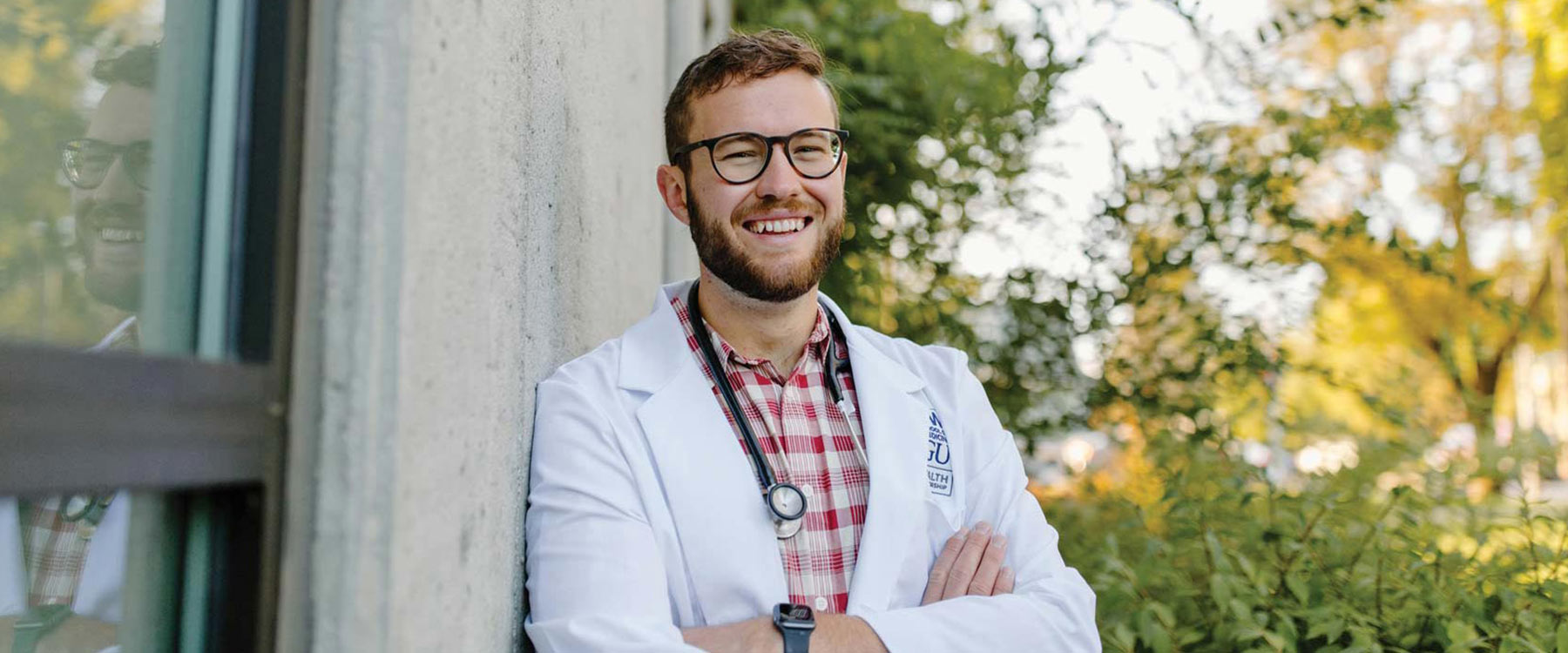
This story appears in the fall 2020 issue of Whitworth Today magazine.
In this Q&A, Glover shares about the innovative community-based research project he's doing to improve healthcare for refugees, why doctors should have big imaginations, his two key C's for research success, and more.
